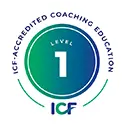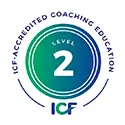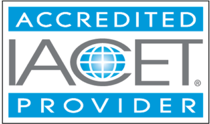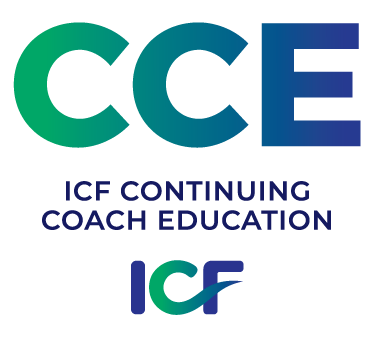APPENDIX
KEY DEFINITIONS OF TERMS USED IN THE CODE
GLOSSARY OF OTHER TERMS
1. PURPOSE
The International Coaching Federation (ICF) is the world’s leading coaching association.
The ICF is made up of six family organizations (FOs). Together, they form the ICF Ecosystem.
The FOs are: ICF Professional Coaches, ICF Credentials and Standards, ICF Coaching Education, ICF Foundation, ICF Coaching in Organizations, and the ICF Thought Leadership Institute. The ICF Global Board provides strategic direction for and coordination of the complete ICF ecosystem.
Based on its mission and responsibility, ICF provides a code of ethics setting out ethical standards of professional conduct required to be adhered to by all within the ICF Ecosystem, whether acting as ICF professionals (see definition) or in any other capacity. The roles and responsibilities governed by the ICF Code of Ethics include ICF professionals, ICF staff (see definition), volunteers, members of ICF boards, leaders of ICF Communities of Practice, and members of ICF global committees, task forces, and core teams (whether they are ICF professionals or not).
The ICF Code of Ethics incorporates the core values of the International Coaching Federation (ICF Core Values) as a foundation to understanding the ICF Code of Ethics, ethical principles, and ethical standards of conduct. The ICF Code of Ethics serves to uphold the integrity of ICF and the global coaching profession by:
Setting standards of conduct consistent with ICF core values and ethical principles.
- Guiding ethical reflection, education, and decision-making.
- Adjudicating and preserving ICF ethical standards through the ICF Ethical Conduct
Review (ECR) process.
- Providing the basis for ICF ethics training in ICF accredited programs.
This Code of Ethics is intended to assist those persons subject to the Code by directing them to the ethical factors, values, and principles that need to be taken into consideration whenever they need to engage in ethical reasoning and ethical decision-making. The ICF Code of Ethics applies when people represent themselves as belonging within the ICF ecosystem and/or ICF professionals in their professional interactions.
The challenge of working ethically means that those within the ICF ecosystem will inevitably encounter situations that require responses to unexpected issues, resolution of dilemmas, and solutions to problems.
People within the ICF ecosystem strive to be ethical, even when doing so involves acting courageously and making difficult decisions that uphold the “DO GOOD” principle when it comes to their stakeholders.
Part 4 of the Code articulates the ethical obligations of ICF professionals who are acting in their different roles as coach, coach supervisor, mentor coach, trainer, and student coach-in- training.
The ICF Independent Review Board serves to uphold this Code of Ethics through the Ethical Conduct Review (ECR) process, which is applicable to all ICF professionals. ICF mandates that all credentialed ICF professionals have continuous ethical education and training. Furthermore, ICF accredited coaching education programs are required to provide ethics training as ICF considers ethics to be the foundational element of the coaching profession.
The ICF Code applies to all individuals or entities falling within the ICF ecosystem. No individual or entity falling within the ICF ecosystem may opt out of any section or part of the Code, nor are they permitted to delete, modify, or amend any provisions within the Code.
4. ETHICAL STANDARDS FOR ICF PROFESSIONALS
Meeting these ICF ethical standards of conduct is the first of the ICF core coaching competencies (ICF Core Competencies): “Demonstrates Ethical Practice: understands and consistently applies coaching ethics and standards.”
The following ethical standards are applied to the professional activities of ICF Professionals – regardless of an existing formal coaching relationship (see definitions) or not. These ethical standards are divided into five sections:
1. Agreements for Client and/or Sponsor Engagement.
2. Confidentiality and Legal Compliance.
3. Professional Conduct and Conflicts of Interest.
4. Commitment to Delivering Consistent Value.
5. Professional Integrity and Accountability.
Section 1: Agreements for Client and/or Sponsor Engagement
As an ICF Professional, I:
1.1 Communicate (before coaching begins) with coaching client(s), sponsor(s), and/or other involved parties that the coach is in a direct relationship with to explain the nature of coaching and to co-create a coaching agreement regarding roles, responsibilities, confidentiality, financial arrangements, and other aspects of the coaching engagement.
1.2 Respect all parties’ right to terminate the coaching relationship at any point for any reason during the coaching engagement, subject to the provisions of the agreement.
Section 2: Confidentiality and Legal Compliance
As an ICF Professional, I:
2.1 Maintain the strictest level of confidentiality with all parties involved, regardless of the role I am fulfilling.
2.2 Have a clear agreement about what information is exchanged and how it is exchanged among all parties involved during all coaching engagements.
2.3 Have a clear agreement with client(s), sponsor(s), and other involved parties about what confidential information may need to be disclosed to the appropriate authorities, e.g., illegal activity, required by law, valid court order or subpoena; or imminent/likely risk of danger to self or to others.
2.4 Maintain, store, and dispose of any records, including electronic files and communications, in a manner that promotes confidentiality, security, and privacy, and complies with applicable laws and agreements.
2.5 Fulfill my ethical and legal obligations to my coaching client(s), sponsor(s), colleagues, and to the public at large directly and through any technology systems I may utilize (i.e. technology-assisted coaching tools, databases, platforms, software, and artificial intelligence).
2.6 Am responsible for my support personnel’s adherence to the relevant standards of the
Code of Ethics.
2.7 Maintain the privacy of ICF professionals and use of their contact information (email addresses, telephone numbers, and so on) only as authorized by ICF or the ICF professional.
2.8 Comply with copyright laws and recognize and honor the contributions and intellectual property of others, only claiming ownership of my own material.
Section 3: Professional Conduct and Conflicts of Interest
As an ICF Professional, I:
3.1 Am aware of and discuss with all involved parties the implications of having multiple agreements and relationships, and the potential for conflicts of interest.
3.2 Manage conflicts of interest and potential conflicts of interest with coaching client(s) and sponsor(s) through self-reflection, coaching agreement(s), and ongoing dialogue.
This includes addressing organizational roles, responsibilities, relationships, records, confidentiality, and other reporting requirements.
3.3 Resolve any conflict of interest or potential conflict of interest by working through the issue with relevant parties, seeking professional assistance, or suspending or ending the professional relationship.
3.4 Hold responsibility for being aware of and setting clear, appropriate, and culturally sensitive boundaries that govern professional interactions, physical or otherwise.
3.5 Maintain fairness by being aware of my biases and addressing them so that I do not discriminate toward others based on race, color, gender identity, sexual orientation, socio-economic status, age, spiritual practice, ability, and other groups, classes, and categories of human differences.
3.6 Am mindful of the level of intimacy in the coaching relationship. I do not participate in any sexual or romantic relationship with client(s) or sponsor(s). If I detect a shift in the relationship, I take appropriate action to address the issue or cancel the coaching engagement.
3.7 Understand that ICF professionals often serve in multiple professional roles based on prior training and/or experience (i.e. mentor, therapist, HR specialist, assessor), and it is my responsibility to disclose to the client when I am acting in a capacity other than the role of an ICF professional.
3.8 Disclose to Client(s) the information of compensation and benefits that have been paid/received or will be paid/received for referrals.
Section 4: Commitment to Delivering Consistent Value
As an ICF Professional, I:
4.1 Am aware of and, in partnership with my client, actively manage any power or status differential between us that may be caused by cultural, relational, psychological, or contextual issues.
4.2 Recognize my personal limitations or circumstances that may impair my coaching performance or professional commitments. I will seek support if necessary, including relevant professional guidance. This may require suspending or terminating my coaching relationship(s).
4.3 Remain alert to indications that there might be a shift in the value received from the coaching relationship and discuss this with the client. If appropriate, explore changes in the coaching relationship and/or the potential for a different coach, professional, or resource.
Section 5: Professional Integrity and Accountability
As an ICF Professional, I:
5.1 Accurately identify my coaching qualifications and work within the boundaries of my level of coaching competency, expertise, experience, training, certifications, and my ICF credential.
5.2 Make verbal and written statements that are true and accurate about what I offer as an ICF professional, what is offered by ICF, the coaching profession, and the potential value of coaching.
5.3 Adhere to the philosophy of “doing good” versus “avoiding bad,” recognizing the impact of my professional conduct on my clients, stakeholders, the coaching profession, and society.
I understand that ICF may, at its discretion and according to the ECR process, hold me accountable for violations of the ICF Code of Ethics. I further agree that my accountability to ICF may include sanctions for any violation, such as mandatory additional coach education, mentoring, supervision, or loss of my ICF membership and/ or ICF credentials.




